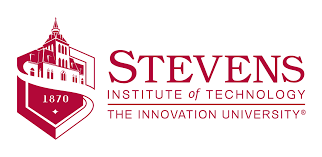The future is technology, so electrical engineers are in high demand. Below are 35 best online master’s in electrical engineering.

Electrical engineering is a complex specialty that our world depends on for innovation. Whether you earn your degree to work on electric motors, communications systems, or power generation equipment, you’ll be an invaluable asset to your chosen profession.
I hope you like math and science because pursuing a master’s in electrical engineering involves a whole lot of it. Once you complete your master’s degree, you’ll be able to design, develop, test, and manage a variety of electrical equipment.
What is an Online Master’s in Electrical Engineering degree?
An online master’s degree in electrical engineering is the next step to further your knowledge within this complex discipline. When you become an electrical engineer, there are several different industries you can choose to work in.
Typically, individuals seeking this degree end up using their skillsets within industries such as information technologies, manufacturing, telecommunications, automotive, and aerospace.
Most students complete an online master’s in electrical engineering within two years. Some colleges will offer accelerated or part-time programs.
How much can you earn with an Online Master’s in Electrical Engineering degree?
There are several different career positions for this degree, so it’s hard to say what the average earnings will be for specific roles. However, according to PayScale, the average salary for a person who has obtained an M.S. degree in electrical engineering makes a median pay of $96,000 per year.
PayScale also reports that job satisfaction for this profession is 4.5 out of 5. Most participants said they are highly satisfied with their choice of study.
Here are some examples of what your possible job title could be:
- Electrical Engineer
- Software Engineer
- Mechanical Engineer
- Computer Systems Administrator
- Construction Project Manager
For a general engineering degree, see OSR’s Best Online Master’s in Engineering.
What is required for an Online Master’s in Electrical Engineering degree?
Like most master’s programs, an online MS in electrical engineering typically takes two years to complete. Although each program you apply for will have different requirements, most programs will require you to hold a bachelor’s degree at an accredited institution. Some programs may also require you to have at least two years of experience, and test for the GMAT or GRE.
Some courses that you can expect to take during your studies include digital signal processing, engineering electronics, communications theory, and digital systems testing.
What are the best Online Master’s in Electrical Engineering degrees?
OSR uses six data points: three school-wide and three program specific. For school-wide, OSR uses Student Satisfaction, Admission Rates, and the number of programs the school offers online. For program specific, OSR checks the Median Debt of graduates from that program, how many degrees are offered within that program’s umbrella department, and what percentage of students at that school graduated from that department.
The six statistics are displayed by each school. The sliding bar under each statistic represents how that school compares to other US institutions. “Not reported” means a school did not release that information to the US Department of Education. A more detailed description of the OSR process can be found on the methodology page.



































